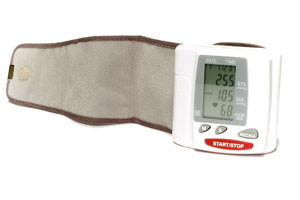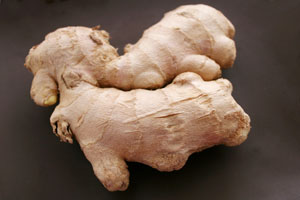Natural Approaches to Lowering Blood Pressure

High blood pressure (hypertension) often has no visible symptoms, especially early on. The only way to determine your blood pressure is to have it measured. If you have high blood pressure, lowering it is vitally important to your long-term health and to reducing your risk of cardiovascular disease.
Risk factors for high blood pressure include the following:
- Being Overweight—If you are overweight, this will put extra pressure on your artery walls
- Inactivity—If you don’t exercise, you increase your risk of high blood pressure
- Stress—Increased and prolonged stress can raise blood pressure
- Alcohol consumption—Overdoing the drinking of alcoholic beverages can increase the risk
- Potassium—If your potassium level is too low, cells tend to compensate with more sodium, which places you at greater risk
- Sodium—Too much sodium in your diet leads to fluid retention and higher blood pressure
- Age—As you get older, your risk increases
- Genetics—Some families have greater risk of high blood pressure than others
- Sugar—Excessive sugar intake, especially refined sugar, can lead to diabetes, which is frequently associated with high blood pressure
- Inflammation – inflammation can be blamed for a whole host of health complaints and should probably be the first issue addressed. All of the risk factors listed above can be related to or be affected by inflammation. Eating a diet which contains REAL foods and that includes lots of fruits and vegetables is key in helping to reduce inflammation in the body!
While you cannot influence some of these factors (such as genetic disposition and aging), it is possible to manage most of the items on this list.
Exercise is one very effective way to reduce high blood pressure. First of all, it increases your general level of activity. Second, it tends to lower your weight. And third, it helps to reduce stress because of the release of endorphins. Yoga and biofeedback have also been found to be beneficial in reducing stress.
When it comes to diet and blood pressure, bananas can be a useful addition. Bananas are a rich source of potassium and can help normalize the potassium-sodium balance in your cells. Limiting the sodium content of your food is also important. Eliminate refined sugar from your diet. Relying on fruit and natural 100% fruit juices to sweeten your diet can be one of the best things you can do.
Alcohol, like most everything else, should be taken in moderation. If you have too much stress in your life, realize that alcohol is a depressant and cannot help in the long run. Exercise is a much better stress reliever.
A few herbs are believed to contribute to high blood pressure risk:
- Asian Ginseng
- Licorice
- Rosemary essential oil
- Ephedra
Calcium and magnesium have been found to improve blood pressure. In particular, they’re associated with improving nerve action, calming nervous tension and reducing jitters.
These substances also help reducing high blood pressure or its risk:
- Coenzyme Q10 (CoQ10)
- Garlic (may interfere with other medications, so check with your doctor)
- Hawthorn (a natural herb with no known interactions with medications)
- Fish oil
- Folic acid
- Cayenne pepper
If you have high blood pressure, be sure to consult with your doctor before following any of the above suggestions. But rest assured that there are natural ways for you to manage your blood pressure without resorting to drugs.

